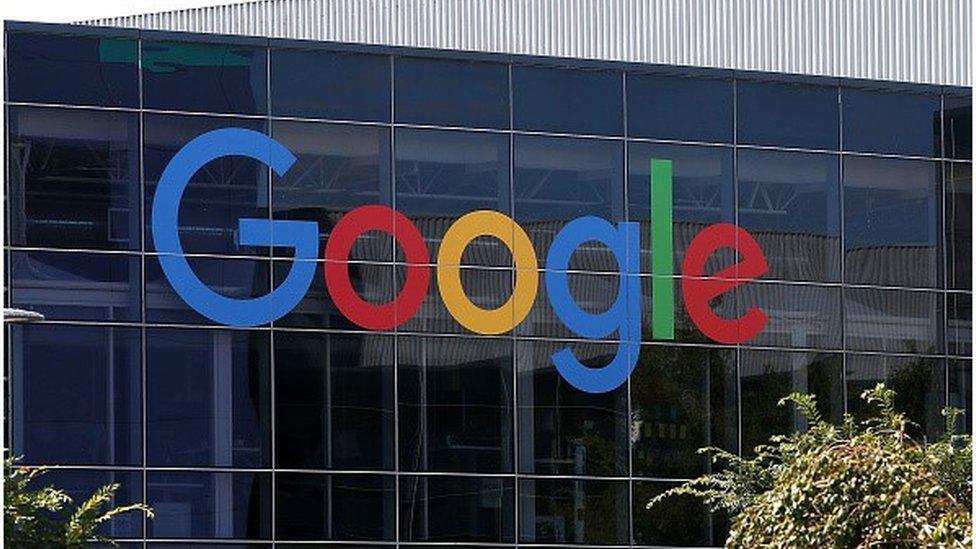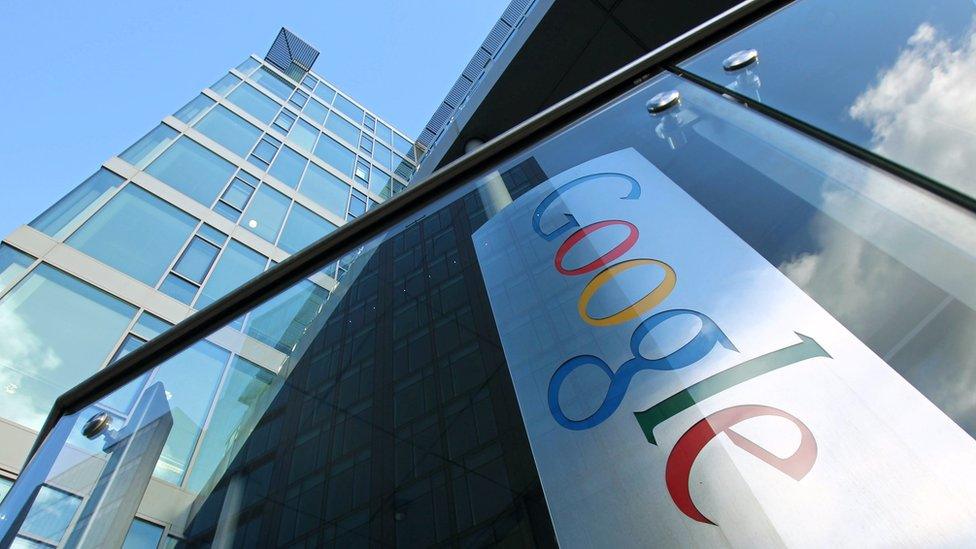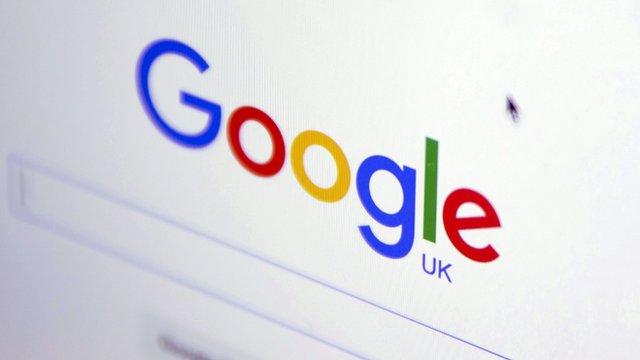Google tax deal 'seems small' say MPs
- Published

An influential group of MPs has criticised an agreement between Google and the tax authority over how much the company has to pay in back taxes.
The Public Accounts Committee (PAC) said, external the £130m settlement "seems disproportionately small", compared with the size of its UK business.
The PAC questioned Google's European head, Matt Brittin, earlier this month.
The internet giant insisted that it paid a "fair" amount of tax following an outcry to the settlement last month.
At the time of the deal, the Chancellor described the agreement as a "great success".
The committee said it was not possible to judge whether the agreement had been fair to taxpayers, because of the lack of transparency over details of the settlement and how it was reached.
The PAC chair, Meg Hillier, MP said public anger at the agreement to cover taxes due over the past 10 years had been "palpable".
"Whether you call it secrecy or confidentiality, this lack of transparency does nothing to build confidence that big corporations are paying their fair share of tax," she added.

Head of Google's European operations, Matt Brittin was questioned by the Public Accounts Committee
'A fair share'
In its report the committee was concerned the taxman "appears to have settled for less" corporation tax from Google than other countries are willing to accept.
It called for HMRC to reopen the deal if new evidence became available as a result of investigations by other European authorities.
Earlier this month, French Finance Minister Michel Sapin ruled out striking a deal with the US company.
In its recommendations to government, the committee called on HMRC "to lead the way in pressing for changes to international tax rules to prevent aggressive avoidance by multinational companies."
MPs said the taxman seemed unable to collect "a fair share" of corporation tax from global companies in the UK because international rules were not working.
The committee said: "Google's stated desire for greater tax simplicity and transparency is at odds with the complex operational structure it has created."
'Rigorous enforcement'
MPs added that Google did not pay a penalty as part of its settlement and complex rules made it easier for large businesses to avoid being fined than the average taxpayer.
The UK is Google's second largest market after the US, contributing around 10% of Google's worldwide revenue.
A spokesperson for HMRC said in a statement: "HMRC does not settle for a penny less than is due under the law from multinationals. Last year we brought in an additional £7bn by rigorously enforcing the tax rules that apply to large businesses.
"We completely understand that there is a real appetite for as much information and insight as possible into how we pursue the tax payable by multinationals.
"We are committed to being as open and transparent as we can within the constraints of our statutory duty of taxpayer confidentiality."
There has been no response so far from Google to Wednesday's report.
- Published28 January 2016

- Published27 January 2016
